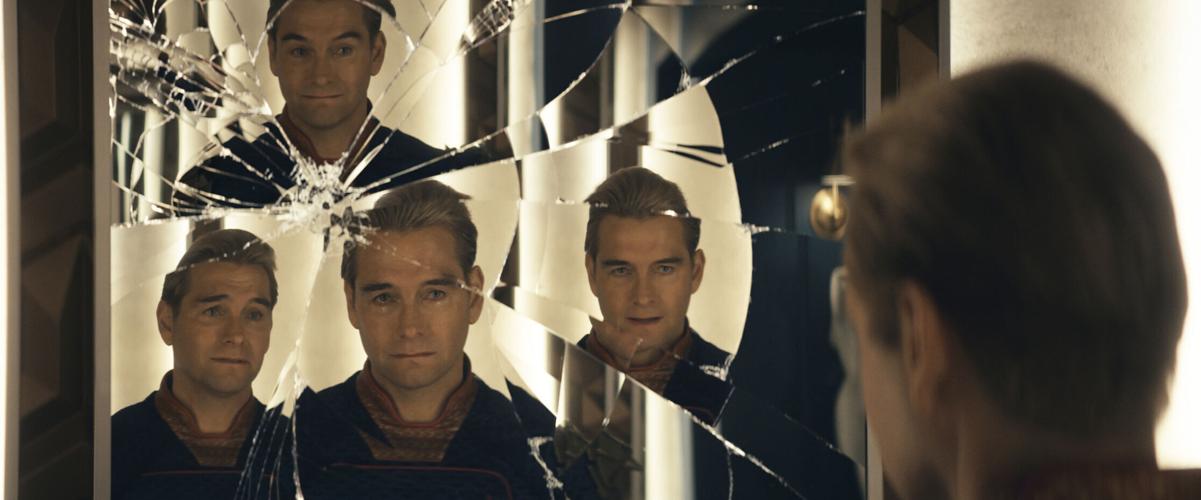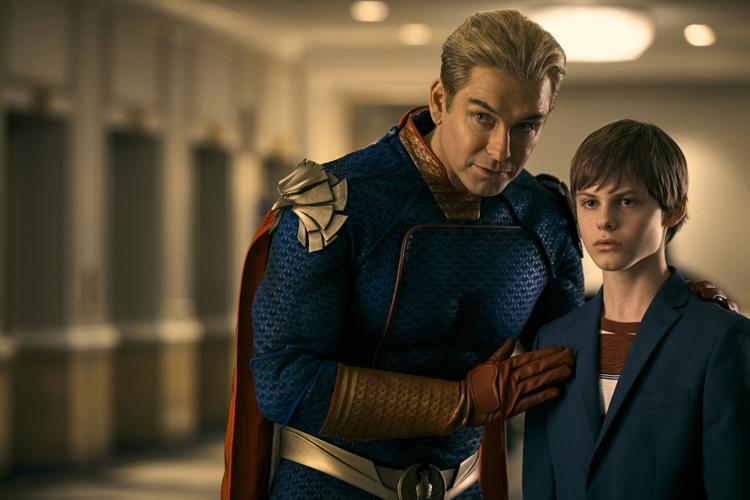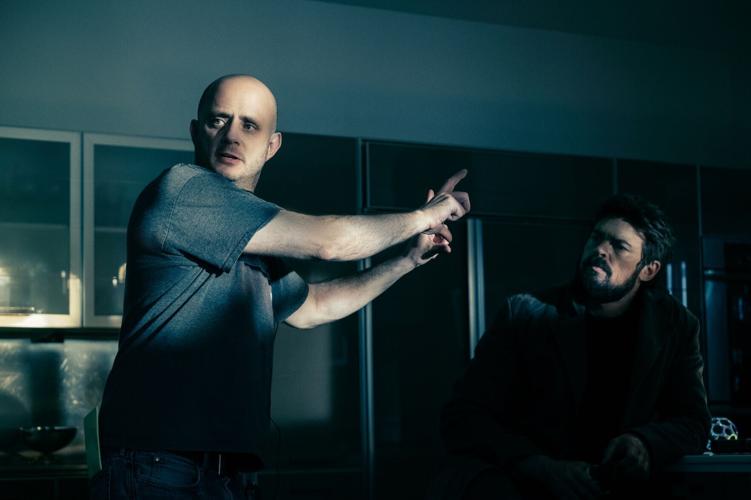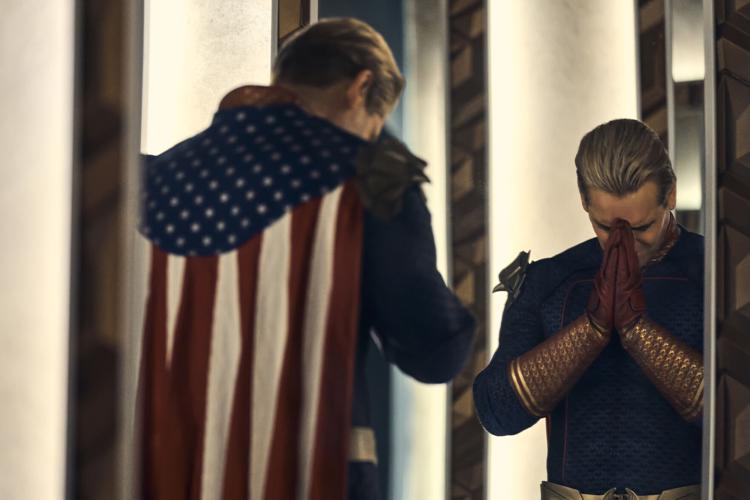Life for “The Boys” has pretty much gone as planned, says the show’s developer.
“We always knew in the broadest possible sense (where we wanted to go,)” says Executive Producer Eric Kripke. “But you want to leave a lot of space because you want the writers to surprise you. You want the actors to surprise you. It’s a mistake for shows to suffocate themselves with too much mythology.”

Antony Starr and Cameron Crovetti star in "The Boys."
“The Boys,” however, has always gone against the grain. Instead of showing superheroes as noble defenders of truth and freedom, it dared to pull off the masks and show them as petty, conniving controllers who hid behind a manufactured image.
When Antony Starr, who plays Homelander, leader of The Seven, read the pilot, “I came in without a lot of expectation,” he says. “There was a very broad brushstroke example of what the character is. There were two scenes – one where he’s a good guy and one where he kills a man. It’s very obvious he’s a person of duality. But we were able to psychologically dig in, go deep with that and create a pretty fleshed-out character. That’s why people have responded to it.”
People are also reading…

Homelander, played by Antony Starr, considers what has transpired on "The Boys."
A hit with superhero fans and others, “The Boys” led to a second series, “Gen V,” that continues the concept.
The mothership, however, will end after the fifth season.
“It’ll be sad,” Starr says, “because I love it. I also love this collaboration with Eric. It’s a beautiful bunch of people that are super-creative and super-talented. I’ll be sad to see it go, on a human level. But I would hate the show to be good, then drag itself through the mud a little bit at the end. Now that we know the finish is coming, we get to enjoy the job and really soak it in.”
Kripke says Amazon bosses have been good to let the series play out over five years. “When you have an end point in mind, you can sort of build out the architecture of it.”

Eric Kripke, left, developed "The Boys" for television.
Key to the changing world, of course, is the way Homelander is presented. Very “Captain America” in the beginning, he’s now a master manipulator, dispensing adversaries with abandon and ordering his colleagues to kill everyone at Vought (the controlling company) who has evidence against them. The new president of the United States swears allegiance to Homelander and declares martial law, deputizing Homelander and his fellow supes.
While “The Boys” has had some outrageous explosions, murders and plots, Kripke and company haven’t been told to tone it down. “They trust we’re going to ground it in character,” he says of his Amazon Prime bosses. “They trust that there’s always going to be a story point. We don’t really talk about the shocking stuff that much. We spend a lot of time talking about character and thematics and how we use this metaphor of superpowers to reflect what’s happening in the world.
“Once you give these superpowers to regular people, violent, effed-up stuff is just going to happen.”
While crafting the metaphors, “we land on some of these crazy things,” he adds. “It’s like you’re taking our world and injecting it with steroids. What you get is this insane, sometimes violent thing. It’s just our world in a fun-house mirror.”

Antony Starr plays the troubled Homelander in "The Boys."
While Homelander has gotten more vindictive as the years have gone on, he also has transformed physically. In recent years, that bleached-blond image has gotten significantly darker. Could hair color be a barometer of something more?
Starr passes on the question. Kripke, however, is game: “We very specifically and intentionally counted how many blond, how many dark per season and we’re moving that ratio up. It’s six years since we first started shooting, right? So we all are evolving as we go.”
Viewers have responded to “The Boys,” Starr says, because “there’s no suffocation in this. It’s an open court where people are bringing their ideas. We drape those ideas over a rock solid form of writing that these guys cook up before the season even starts.”
Season 4 of “The Boys” airs on Prime.
Bruce Miller is editor of the Sioux City Journal.












